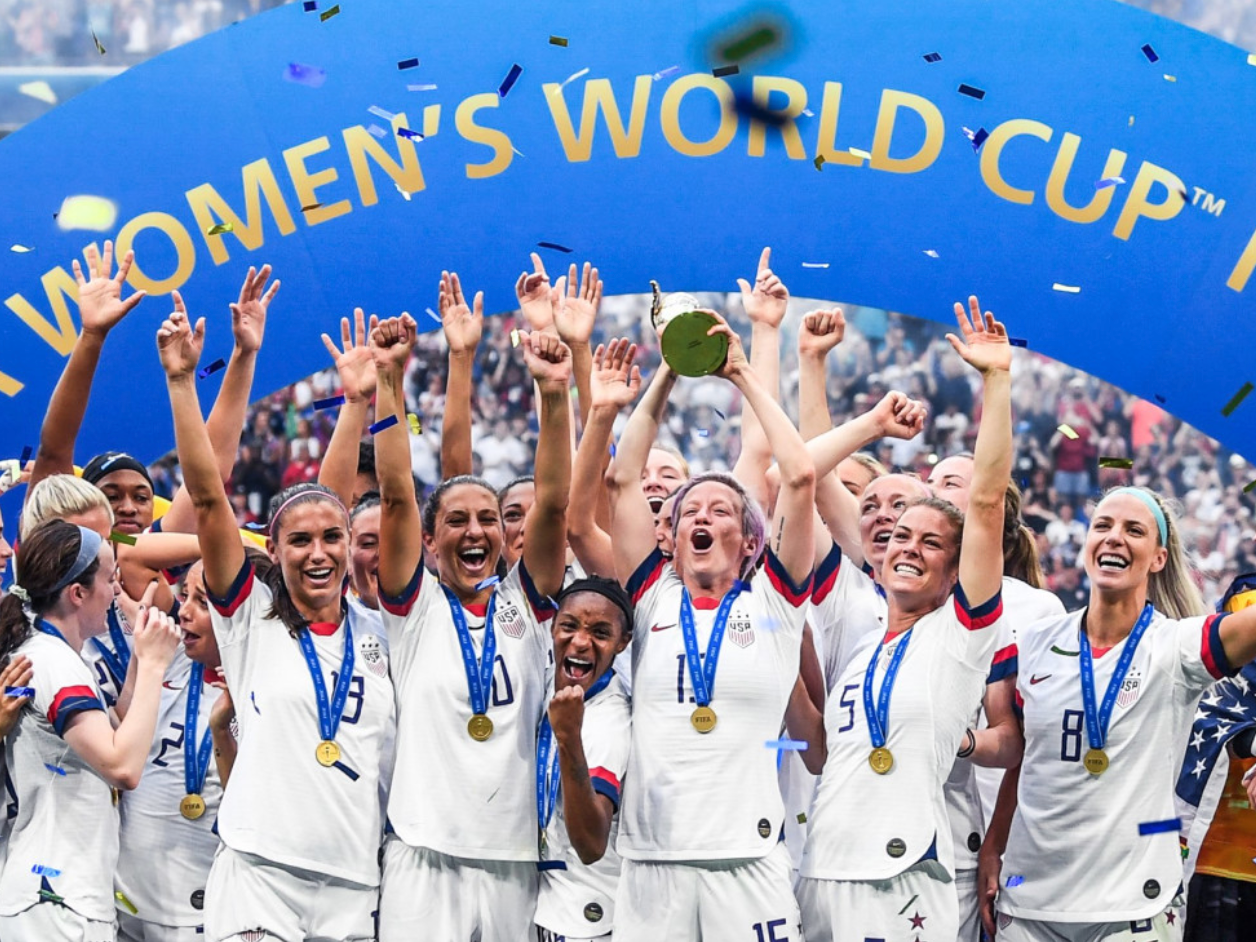In March 2016, five key members of the U.S. women’s soccer team filed a federal complaint with the federal employment agency, the Equal Employment Opportunity Commission (EEOC), alleging wage discrimination. The complaint, brought against the U.S. Soccer Federation, alleged that female soccer players were paid four times less than the male players despite playing more games and generating more revenue. This complaint was filed almost one year after the women’s team won the 2015 World Cup in dominant fashion.
In March 2019, another complaint was filed by the women’s soccer players, but this time in the United States District Court for the Central District of California. The complaint alleged again that women were paid less than their male counterparts. This time the complaint came from twenty-eight players and was filed just after the U.S. men’s soccer team failed to qualify for the World Cup in 2018. Later that year, the U.S. women’s team went on to win their second consecutive World Cup.
Both filed complaints claimed that the U.S. Soccer Federation violated The Equal Pay Act and Title VII of the Civil Rights Act of 1964. These laws require that men and women in the same workplace be given equal pay for equal work. Under these laws, jobs deserving of equal pay do not need to be identical in scope but must at least be substantially similar to be legally entitled to equal pay regardless of the gender or sex of the workers. All forms of payment such as salary, bonuses, and accommodations (working conditions) are evaluated under these laws. The womens’ team claimed they had worse working conditions than the men and were not only making less money but were doing so while substantially outperforming them.
In 2020 a federal judge for the United States District Court for the Central District of California dismissed key parts of the womens’ equal compensation claim. The judge held that the women failed to establish a genuine dispute of receiving unequal pay. The judge pointed to the differences in structure between the contracts and highlighted that the Women’s National Team had previously rejected an offer to be paid under the same pay-for-play structure as the Men’s National Team. By rejecting this offer the judge held that the women’s Team had an opportunity to receive equal pay and had declined. Angry and upset by the judge’s decision, the U.S. Women’s National Team filed an appeal. The appeal asserted that the judge failed to look at rates of pay sufficiently and emphasized that the women were contractually required to win more games than their male counterparts just to be entitled to their bonuses.
In February 2022, the U.S. Soccer Federation reached and publicized a settlement with the Players’ Association, through which they are going to pay the U.S. women’s team $24 million. $22 million will be split among the players on the U.S. Women’s National Soccer Team and $2 million will go to benefit the players in their charitable efforts, post-professional soccer careers, and the like. Along with this settlement, the Federation agreed to compensate the men’s and women’s teams equally.
In sum, while court matters were still pending, the U.S. Soccer Federation decided that it was time for change. Three months after the settlement, and a long six years of campaigning about and advocating against wage discrimination, there are now separate collective bargaining agreements for both the men’s and women’s national teams, but both include “identical terms” regarding wages that will run through 2028.
The two main elements of the separate collective bargaining agreements are the equal working conditions and identical compensatory provisions. Both the men and women soccer players will now have equal field surfaces, equal hotel accommodations for matches and camps, equal staffing, and equal utilization of charter flights for team travel. Along with this, athletes will also receive equal pay in international matches and competitions, identical performance-based bonuses, equal splits on commercial and ticketing revenue, and a 50:50 split of the prize money pooled together from the four upcoming World Cups.
Somewhat shockingly, the U.S. is the first nation in the world to provide equal pay to its national soccer teams! Former FIFA Women’s World Cup champion, two-time Olympic Gold medalist, and sitting U.S. Soccer Federation President Cindy Parlow Cone fittingly commented, “This is a truly historic moment. These agreements have changed the game forever here in the United States and have the potential to change the game around the world.”
It will be interesting to see if the changes made by the U.S. Soccer Federation lead other countries to follow suit. Not only is this a historic moment in the world of sports, but also in the fight for women receiving equal pay around the country and the world. Notably, it appears that political trends influenced this historic event more than current legal standards or court decisions.


